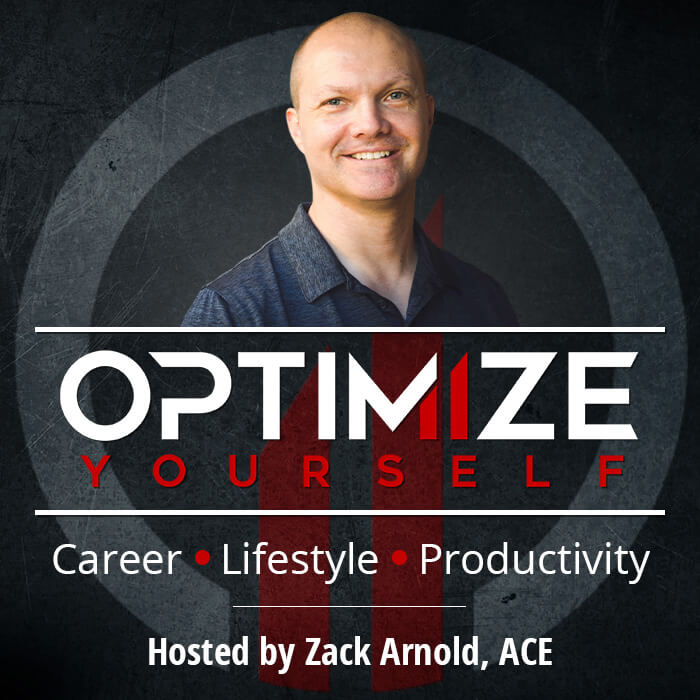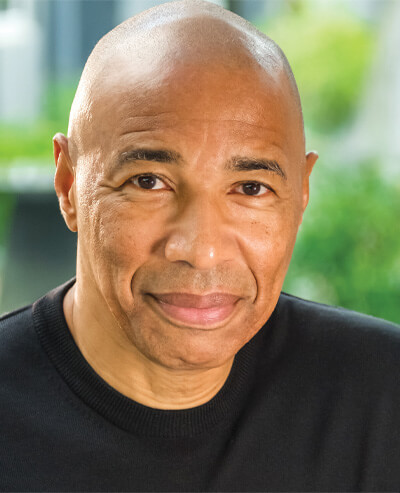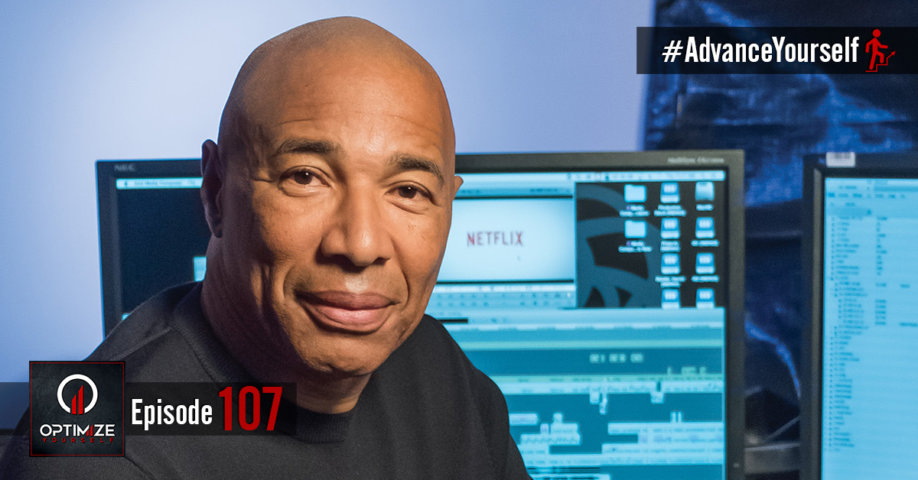

Zack Arnold
Ep107: Recognizing, Mentoring, and Promoting Diversity In Hollywood | with Monty DeGraff, ACE
“This moment is necessary as much as it is uncomfortable.”
– Monty DeGraff (Comments on diversity in Hollywood June 2020)
According to a 2019 survey of 1700+ post-production professionals (thanks to Blue Collar Post Collective), 1.5% of those surveyed identified as ‘African-American’ with over 80% identifying as ‘White.’
Let this sink in for a second…1% of people in post identify as African-American.
How is this possible? Is there a systemic reason for this? Or on the contrary, should we just accept that “it is what it is?”
Seasoned editor Monty DeGraff, ACE (Star Trek: The Next Generation, Law & Order, Daredevil, Man In the High Castle, Narcos: Mexico) worked in Hollywood post-production for 9 years before he met another black person like himself. Over the years, he’s seen very little increase in the number of black people working in post-production, largely because there has never been a real incentive to change it.
In this interview, Monty and I address some of the following questions:
- Why aren’t black people getting the opportunities they deserve?
- In the midst of the COVID- 19 pandemic where many of us are forced out of work, can we finally take the time to examine our own responsibility in the racial epidemic that is happening in Hollywood?
- Can we honestly evaluate where our internal biases have informed the status quo?
- Can we recognize that white privilege doesn’t mean you had an easy life, it just means the color of your skin didn’t contribute to your hardships?
This is an incredibly candid and uncomfortable conversation (as it needs to be) where Monty opens up about how he’s had to fight harder in this industry because he’s black, how internal biases inform the comfort level in the editing bay, and why white people need to start having these conversations with each other.
If you have been feeling sad and helpless about racism and the mistreatment of black lives, please listen to this interview to gain insight into the black experience specifically in post from Monty’s perspective and hear his thoughts on what steps we can take collectively to make true and lasting change in the post-production industry.
Want to Hear More Episodes Like This One?
» Click here to subscribe and never miss another episode
Here’s What You’ll Learn:
- The story of how Monty almost became a lawyer but realized it was Hollywood that was his true calling.
- How he never considered himself a mentor but naturally fell into it
- His advice on what assistants should be using to convince producers they can cut.
- Monty’s secret for how he fast-tracked himself from Assistant Editor to Editor. SPOILER: You have to ask.
On diversity in Hollywood:
- How post-production in Hollywood is predominately white and how he’s had to navigate that to get the opportunities he’s had.
- What it’s like to go into a room and see the surprise on an interviewer’s face that you’re black and they weren’t expecting that.
- What football has to do with unconscious bias and how we can learn from it in our own lives.
- How we all have prejudices, regardless of race, and this is a moment to check ourselves.
- What Monty believes is the ONE thing that connects us to all people.
- How to see beyond color and find commonality beyond the superficial things that seem to separate us.
- How most black people believe they will encounter hostility working in white environments and how that affects them.
- Why Monty thinks white people need to have the race conversation amongst themselves and what specifically they can talk about to make forward progress.
- The importance of self-reflection and looking into our own hearts and minds to see how we are reacting to the world around us.
- White privilege doesn’t mean your life wasn’t hard, it just means the color of your skin wasn’t one of the reasons that your life was hard.
Useful Resources Mentioned:
Blue Collar Post Collective Surveys
Want to Be Part of the Solution but Don’t Know How? Start with Listening.
More Podcasts & Articles on Equality
Guest Bio:

Monty DeGraff was born and raised in New York City where he attended public schools. He graduated from the University of Rochester with a B.A. in History and then headed west to California. Through a classmate he landed a job as a page at ABC and from there quickly became an Apprentice Editor in their film department. This allowed Monty to join the MPEG just as non-linear editing was beginning to reshape television post production.
Monty became an Assistant Editor on Star Trek: TNG and it was there that he received his first credit as Editor. In took 3 more years bouncing between being an Editor and an AE before Monty landed a job as Editor for Dick Wolf on Law&Order. He stayed there for 5 seasons , one of which won the Emmy award for best Dramatic series.
Since then Monty has worked on shows big ( “Daredevil”, “Narcos: Mexico “, and “The Man in the High Castle” ) and small and everything in between. Monty’s love of craft continues to grow, as does the enjoyment he gets from working with talented, passionate storytellers. In addition to the pleasure of cutting, Monty has found great satisfaction from mentoring the next generation of editors. He currently working on a spinoff of the STARZ series “Power” called “Raising Kanan”.
Show Credits:
This episode was edited by Curtis Fritsch, and the show notes were prepared by Debby Germino and published by Glen McNiel.
The original music in the opening and closing of the show is courtesy of Joe Trapanese (who is quite possibly one of the most talented composers on the face of the planet).
Note: I believe in 100% transparency, so please note that I receive a small commission if you purchase products from some of the links on this page (at no additional cost to you). Your support is what helps keep this program alive. If you have any questions, please don’t hesitate to contact me.


